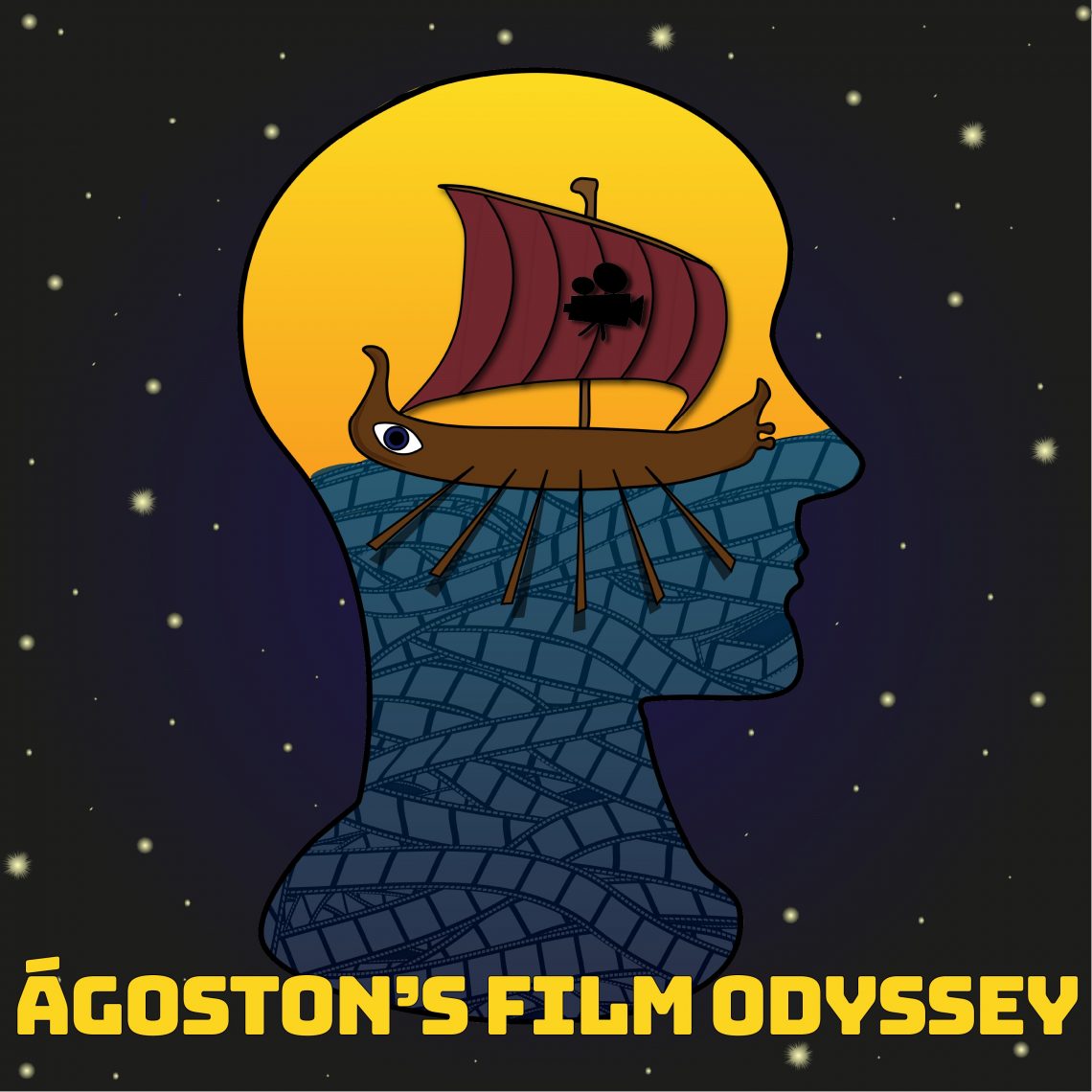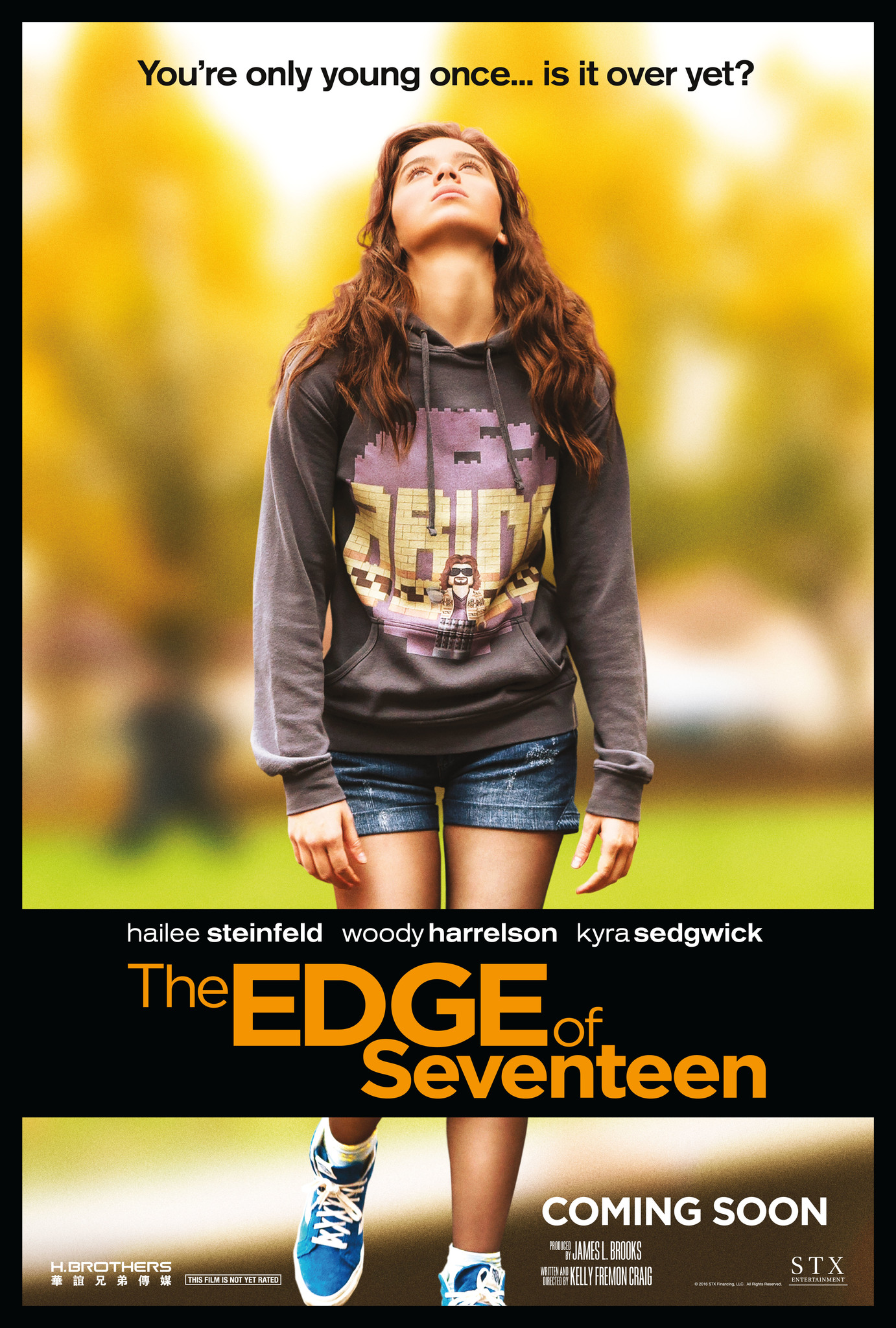Kelly Fremon Craig’s coming of age directorial debut The Edge of 17 (2016) admirably juggles laugh-out-loud scenes with tragic sadness and surprising levels of darkness, but grows repetitive and loses steam on the way.
Nadine (Hailee Steinfeld) and Krista (Haley Lu Richardson) have been best friends since childhood, but as they are nearing adulthood their relationship is complicated by Krista starting to date Nadine’s hated older brother Darian (Blake Jenner).
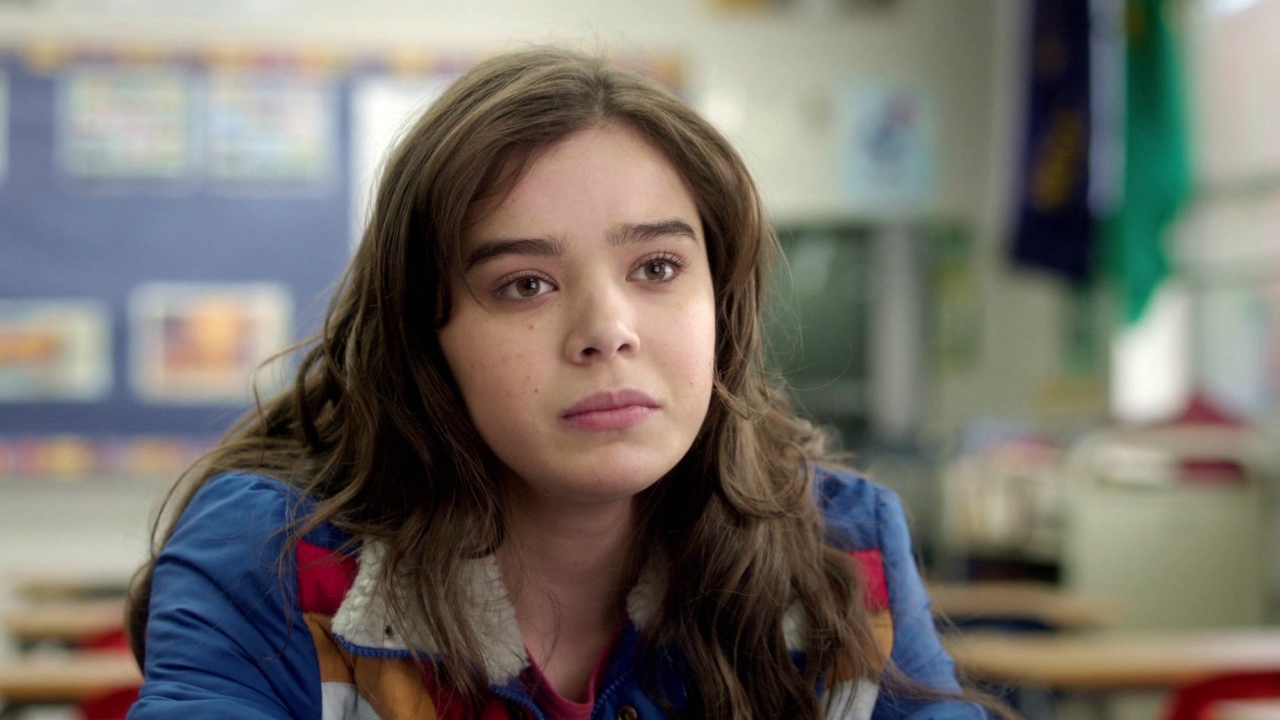
The film avoids multiple pitfalls that burden the coming of age sub-genre. Instead of focusing on themes like friendship or first love, it finds a way to touch upon them without getting lost in well-established formula. Despite the young cast being at least 20 or near 30 at the time of filming and look too well-toned and developed for their on-screen age (adults often get cast as teenagers due to child-labour laws), the movie is honest about teenage insecurities arising from peer pressure and the toll media-saturated and gendered expectations take on young adults. It shows a mostly believable progress of letting go and maturing, even if the lead’s newly found self-awareness comes full circle in a contrived way.
There is a lot that is appealing about The Edge of 17, yet after a while I felt like I was watching a movie about childish people being hurtful to each other for almost two hours. We get repetitive scenes of conflict where one of the characters end the argument by overwhelmingly humiliating the other.
The film is in many ways about prevailingly projecting positivity or negativity. It is easy to feel that we are the only ones hurting. Immaturity and not dealing with the pain of loss can come in all shapes and sizes. Nadine is symbiotically possessive of her one and only friend Krista whom she uses as a sympathetic ear and personal echo chamber. Nadine’s mom, Mona (Kyra Sedgwick) regresses into depression and hysterics anytime life throws a problem at her. The passing of her husband who to a degree was not only a father to her two children but to her as well forces her to take responsibility as an adult, but she is not ready. Pills are the answer. The burden is then carried by Darian who latently becomes a husband and the man of the house (he obsessively works out to feel strong enough to haul), but hoping to ease the smothering with an outside relationship, just like Krista.
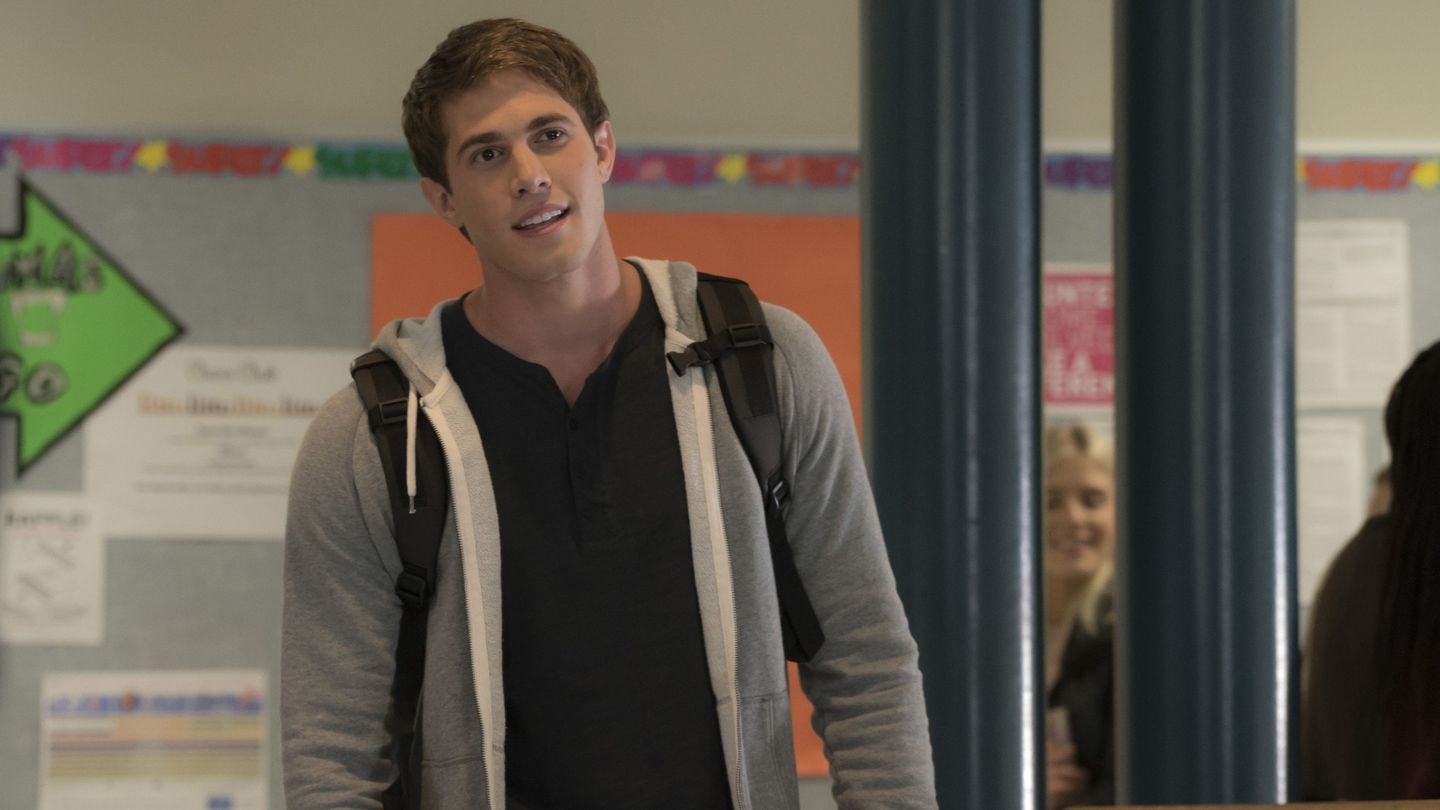
Hailee Steinfeld is a charismatic spit-fire as Nadine, a self-centred blabbermouth full of social anxiety and a narcissistic combo of self-hate and sense of superiority, yet a strangely inherent likability you can’t help but watch and root for. She is written by Fremon Craig as whip-smart and witty, but it never borders on self-consciousness (one aspect of the otherwise terrific Juno, written by Diablo Cody that slightly grated on me). Woody Harrelson is a cranky delight as teacher Mr. Bruner who slowly warms into a father figure for our heroine, with his sarcastic improvisations creating some of the funniest moments. His shaggy-dog eyes beaming with tenderness also give some pathos to the film. He is a definite standout among the male cast members who are while watchable, have a blandness to their presence (Jenner, Hayden Szeto, Alexander Calvert).
Fremon Craig seamlessly arranges pop songs on the soundtrack and forcefully transitions between opposing tonalities, creating a real-life ambiance that is only undercut by the lead character’s frustrating lack of self-awareness. But hey. This is an American film. One good cry and a slight change in attitude can be considered a great step forward that makes everything suddenly alright and ties up the story in a neat bouquet.
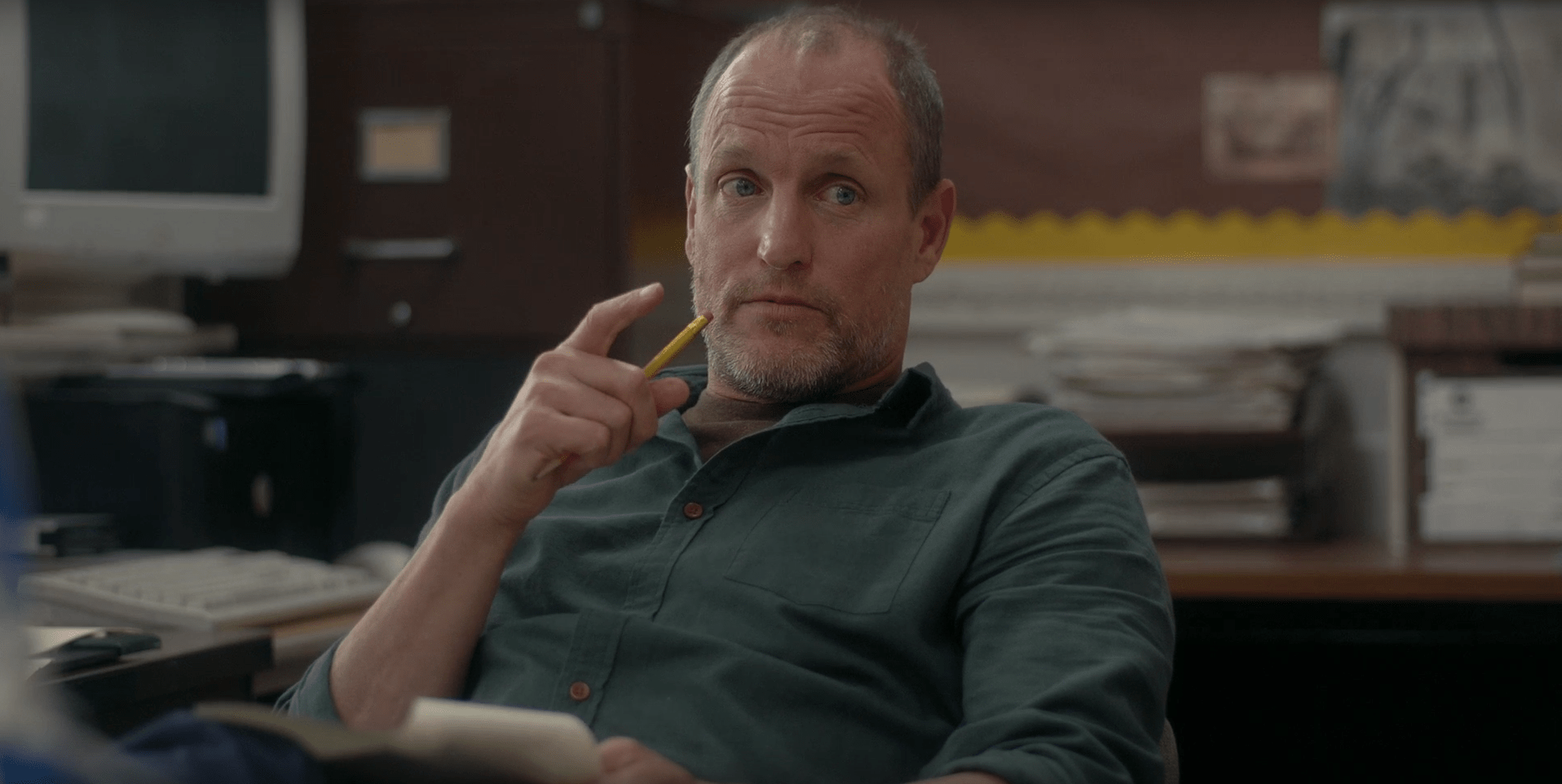
It is wonderful that in recent years, female characters and the actresses playing them are more and more able to show their full spectrum of humanity opposed to falling into stereotypes. Still, many American films often betray an infantilism where the characters regardless of age or gender behave in stunningly selfish and idiotic ways. Their immature, unformed and split personalities provide alibi for character-complexity, while the convenient resolution passes for character-development.
Is blindly projecting positivity on everyone instead of being judgemental of them really the answer? I hope Nadine can grow beyond such fallacy. What is it that truly makes an adult?
Rating: 68%
